Epoxy Shower Walls (Pros and Cons)
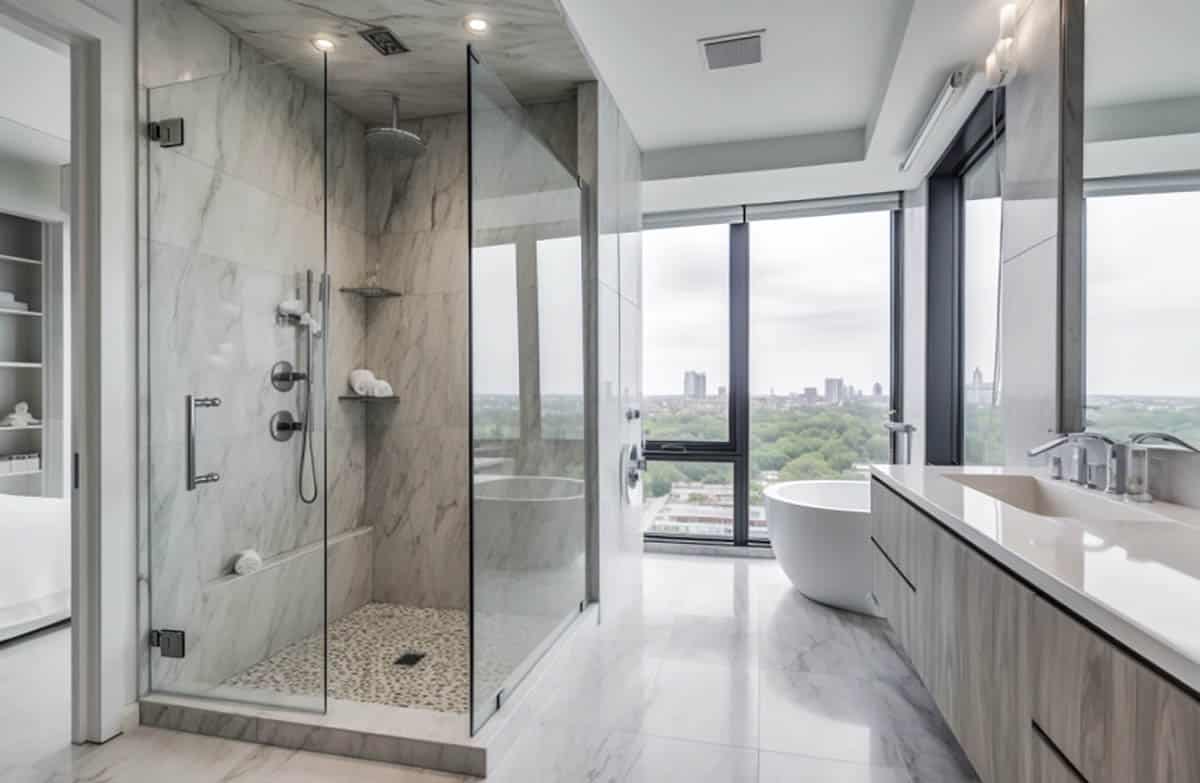
Are you hunting for ideas to spruce up your outdated shower? If you are a do-it-yourselfer or know a trustworthy contractor, epoxy shower walls could be just what you want. Epoxy is an excellent finish substance. It is long-lasting, simple to work with, and looks incredible. With minimal effort, your shower can look like any luxurious natural stone.
Do you want your shower to have the look of Carrara marble? What about shattered jade? How about quartz with vivid blue details? If so, this stylish finish will be your ultimate solution.
Epoxy shower walls are lightweight, making them easy to install even by one person. Overall, it is an ideal material for home renovation projects.
What Are Epoxy Walls for The Shower?
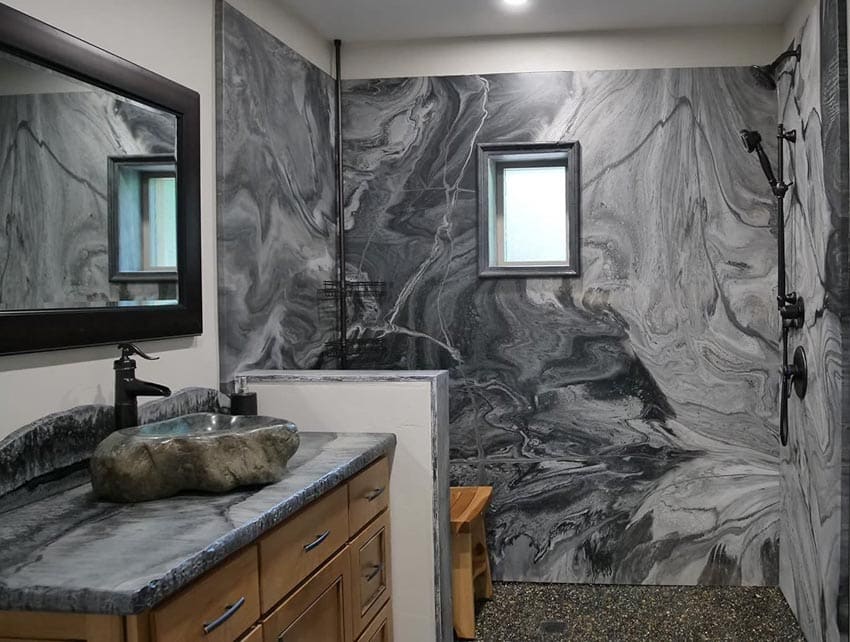
Epoxy is a two-part compound made up of a resin and a hardener. Epoxy shower walls are a stylish, low-maintenance solution to restore your bathtub or shower enclosure.
Epoxy finishes are an even faster option to layer over your current shower walls, making them flawless and completely waterproof. There will be no water damage because these wall coatings are entirely seamless and watertight. Plus, cleaning and maintenance will be very easy to perform.
This construction project is one of the most innovative and high-end methods of finishing a wall without spending much money. It has also been shown to be the most time-efficient technique to finish an accent wall or certain ceiling design types when compared to several other competitive offerings.
Epoxy Shower Walls Pros and Cons
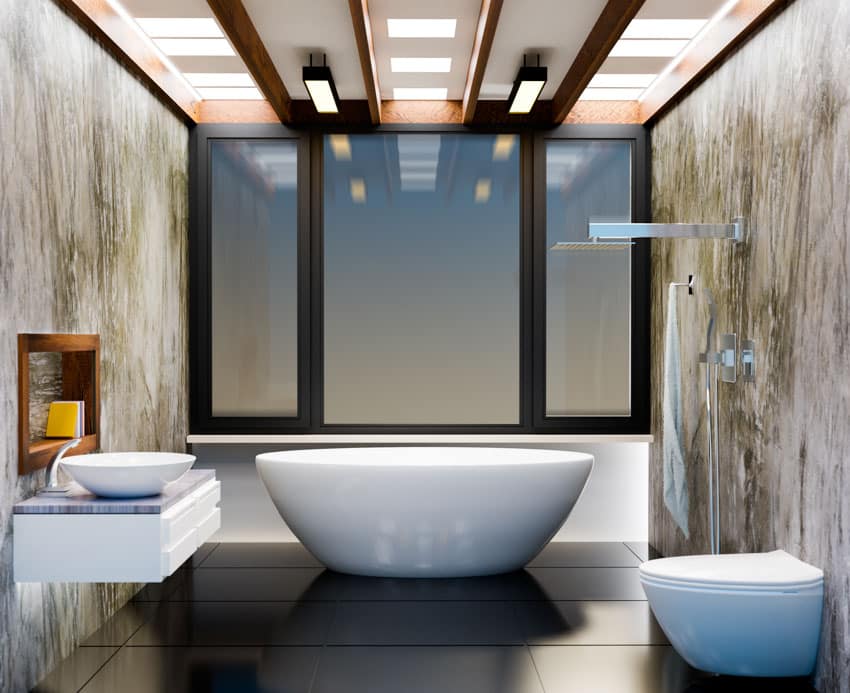
Here we share the advantages and disadvantages of epoxy shower walls.
Advantages of Epoxy Shower Walls
It is a pretty simple material to work with: Any do-it-yourselfer can do the project independently. You will just need a few tools and at least a few days to complete the drying process.
When comparing epoxy to tile, tile might take several weeks to correctly prepare, place correctly, and grout.
It is not heavy: That might not sound like a major matter until you try carrying a massive stone slab. Or, until you start to move a handful of tiles! Heavier materials necessitate reinforcements in the shower to accommodate the weight, complicating the job.
Fortunately, it is a lightweight material. No severely sore arms, back, and legs will be experienced after the project!
The finish is very resilient and long-lasting: Due to its durability, you will not have to worry about the rapid deterioration of the coating. Aside from that, it is resistant to heat, stains, and impacts.
Mold resistant: Its non-porous surface creates an effective water barrier, helping it resist mold and mildew growth.
It is extremely easy to clean and maintain: Have you ever managed to clean a tile shower before? How about a stone-made shower wall? It is very challenging and exhausting, right?
Well, luckily, not with these walls, which are far easier to maintain. If you’re looking for low maintenance shower walls, one made of epoxy is a good place to start.
No Grout Lines: With its continuous finish coating, there are no grout lines, giving it a pleasing, seamless look.
Disadvantages of Epoxy Shower Walls
Does necessitate extensive preparation: You cannot simply glue in epoxy panels and presume them to stay in place permanently.
To begin installation, you will need to remodel your shower. Hence, you will have to wait for a few weeks first before you can start your shower wall construction project.
When the floor is wet and bare, the coating becomes very slippery: You must not use the bare finish for your shower flooring unless you have something to retain your grip.
On the other hand, high-quality finished walls with a textured enclosure pan do not have the same disadvantage. Read more about different types of shower pans here.
Coating design and application may necessitate some training and precision: It is simple to replicate the look of actual stone using these panels, but remember that making mistakes during the installation process is unavoidable. Hence, producing a test panel to ensure you can achieve your desired look is a great idea.
Sensitive to UV light: Exposure to sunlight can cause the material to yellow and fade over time. If your bathroom has abundant natural light, the finish may degrade much faster than normal. In addition, it can be challenging to repair without completely resanding and refinishing.
Epoxy Paint for Showers
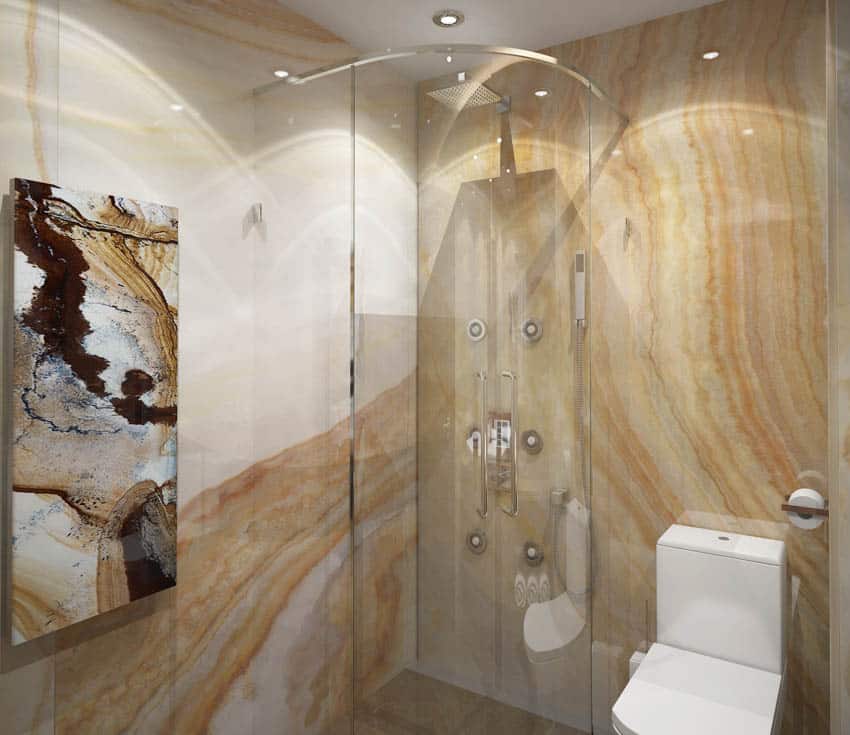
Epoxy paint, primarily intended for application on walls, is one of the strongest and most durable paint products in the marketplace. Furthermore,this paint can be used as a sealant on concrete walls and is commonly used on different types of garages and cellars for flooring.
Epoxy paint for walls is normally sold in a set with two paint bottles. One component is a resin, while the other is a hardener or catalyst. When the two components are combined, they undergo a chemical process and harden or cure quickly.
This chemical process is what gives epoxies their longevity and strength. On the other hand, traditional paints for walls dry through evaporation rather than a chemical reaction.
Painting on this finish necessitates thorough surface preparation to be much more effective. Oftentimes, the finished design falls a little short in flawlessness. However, epoxy tub-and-tile paint could be a great alternative for an infrequently used bathroom or as a stop-gap fix in a bathroom where a more extensive makeover is anticipated in the future.
Epoxy paint for walls will adhere firmly and be extremely difficult to remove without destroying the shower elements.
If you experience certain problems, including cracked, bubbling, or peeling paint, you can restore those areas, but you will need to purchase a complete epoxy paint kit. This is because this paint mixture, once made, should be used within a few hours. You cannot keep an old can of epoxy paint in the basement for future touch-ups.
Epoxy Grout For Showers
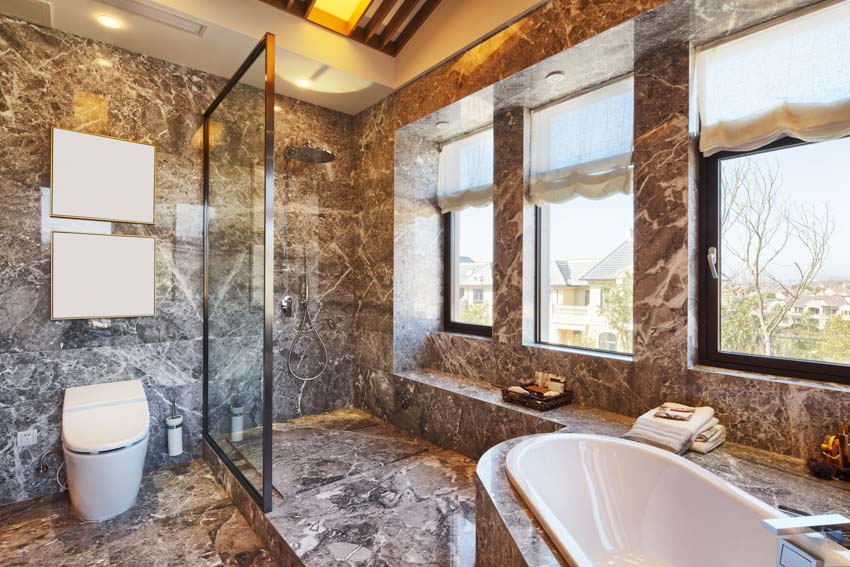
Epoxy grout for shower walls is created by combining resins with a filling powder. This renders it waterproof and nearly stain-resistant. Because of its longevity, it can be an excellent option for backsplashes, flooring, and high-traffic locations.
Since this type of grout does not crack, compress, or discolor, it will be perfect for application in damp locations, particularly shower areas. It is also extremely resistant to strong chemicals contained in cleaning products.
Because this grout is non-porous, it does not have to be sealed, unlike typical cement grout. However, the application this grout is more challenging than that of regular grout. It is more difficult to apply and hardens quickly, so it must be done in phases.
Epoxy panels must also be carefully cleaned before applying the grout. Because the coating can stain porous surfaces like natural stone, they should be sealed before grouting.
Compared to the patterned cement look of ordinary grout, epoxies might have a slightly plastic appearance. Any residual residue left on panels will have a glossy finish and must be properly cleaned soon after application. Because of its shine, this grout is also less gentle and draws attention to flaws in your walls.
How Long Does Epoxy Coatings Last In The Shower?
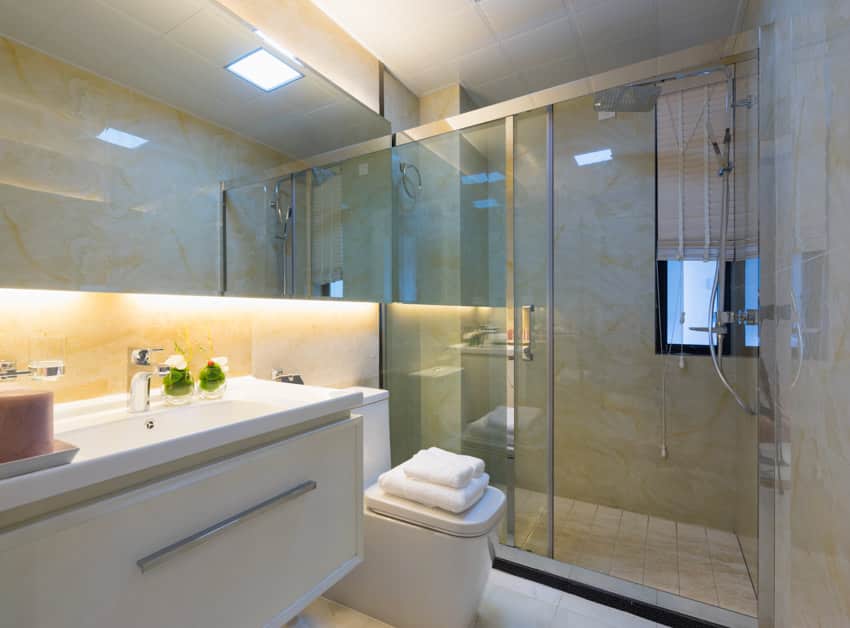
Various elements determine the durability and lifespan of an epoxy shower wall. One of the most crucial considerations is having an expert installation performed since the expert installer will guarantee a warranty.
Once properly placed, an epoxy wall can survive up to 30 years in a home setting and around 5 to 7 years in a business setting. To extend the lifespan of the finish, avoid using bleach, chemicals, or any acid-based cleansers. Using these products will shorten its lifespan.
Can You Epoxy A Fiberglass Shower?
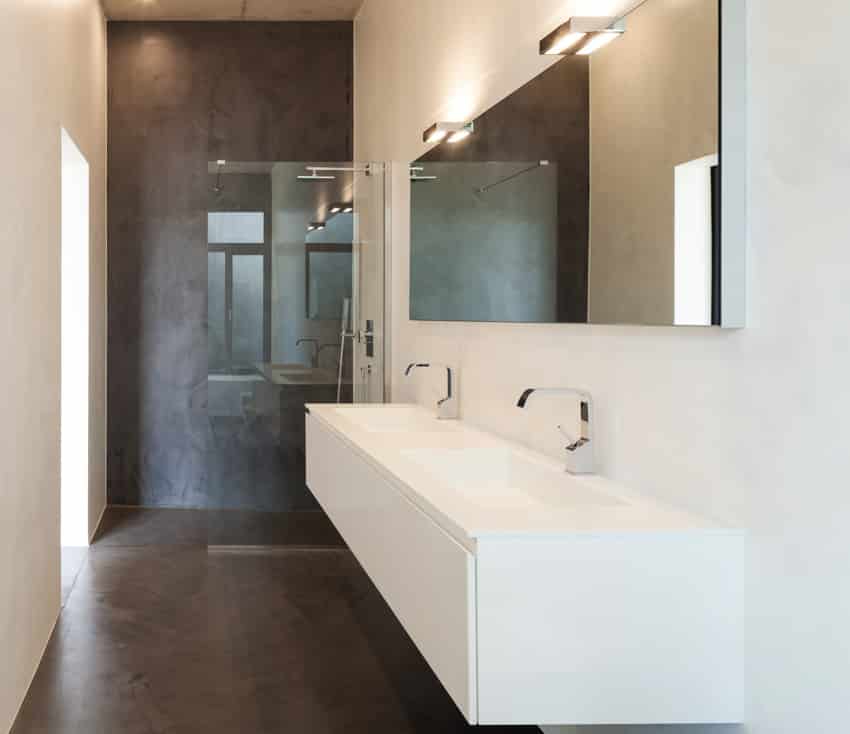
Yes. Epoxy is frequently used to coat fiberglass bathroom fixtures. Just apply the compound to the fiberglass surfaces of your shower cubicle with an epoxy applicator. After treating all surfaces with an adequate coating, allow them to dry for 12 hours to 1 day.
Since it is more moisture and corrosion-resistant, these finishes are suitable for fiberglass bathtubs and showers. The paint hardens very well after curing; thus, it will turn out to be scratch-resistant.
Which Is Better: Epoxy Or Resin?
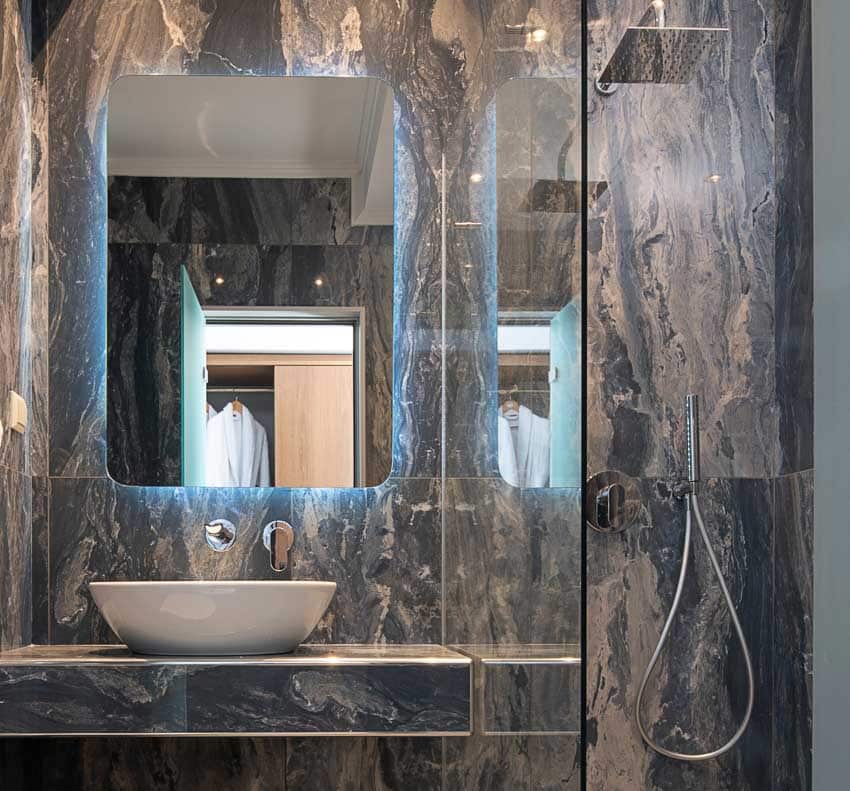
Both of these adhesives have their own strengths and shortcomings. However, allow me first to state their differences and similarities. Epoxy and resin are both adhesives frequently utilized in building projects. They are also known as chemical adhesives and are used to connect plastics, glass, metals, and many more.
Epoxy adhesive is the most powerful of all kinds of adhesives. It is utilized to repair and make vehicles, planes, and sports tools. It is solvent-free and water-resistant.
Aside from its outstanding adhesive qualities, it is extremely robust and resistant to heat and chemicals. When it comes to attaching things securely, epoxy acts as a type of petroleum-based adhesive that significantly outperforms paste-style glue.
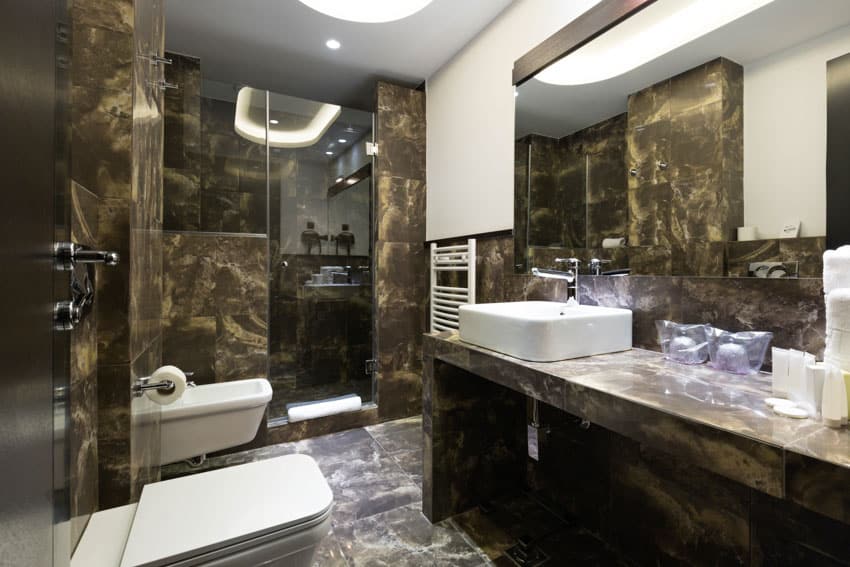
On the other hand, resin is a type of adhesive that comes in powder and liquid formulations. The powdered form of this adhesive is easily combined with water. However, the liquid form is normally packed with a powdered catalyst that must be added to the solution before use. Resin glues take much longer to cure, typically 8 to 10 hours.
Generally speaking, epoxy is a better adhesive compound than resin. Nevertheless, these would be my final words on this argument:
• Both types have glue and are capable of making strong connections, but epoxies are superior.
• Both forms of adhesive are suitable for domestic repairs and building tasks.
• Although both solutions must be mixed before use, epoxies harden quicker than resins.
• Adhesives made from epoxies are significantly more expensive than resin glues since they have exceptional bonding capabilities that outperform all other types of adhesives.
• Resin glues take 8 to 10 hours to set, whereas epoxy’s adhesive only takes 10 to 30 minutes.
• Because epoxy’s adhesive bonds plastics, metals, and wood better than resin glue, it is significantly more suitable for utilization in larger operations such as the construction of aircraft and boats.
See more related content, like this page in our article about epoxy flooring on this page.

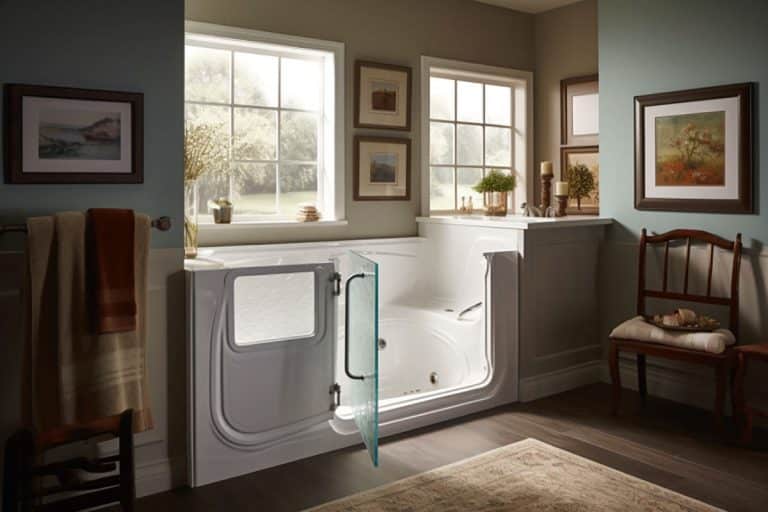

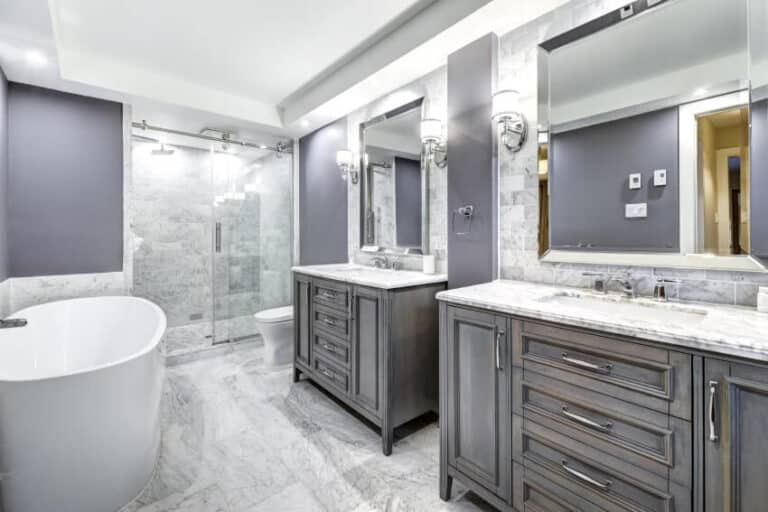
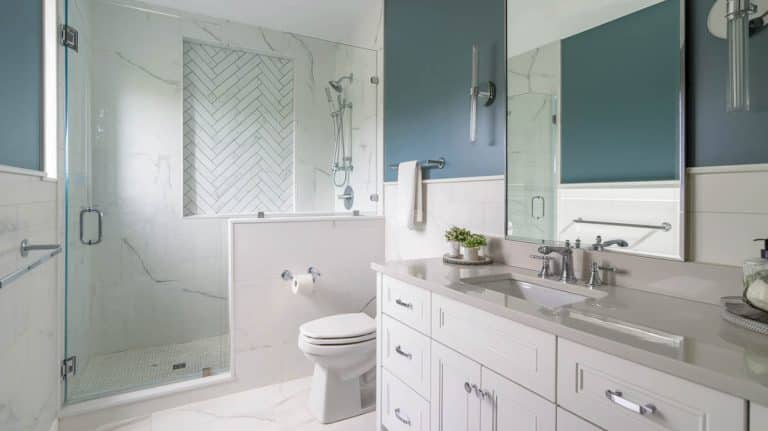
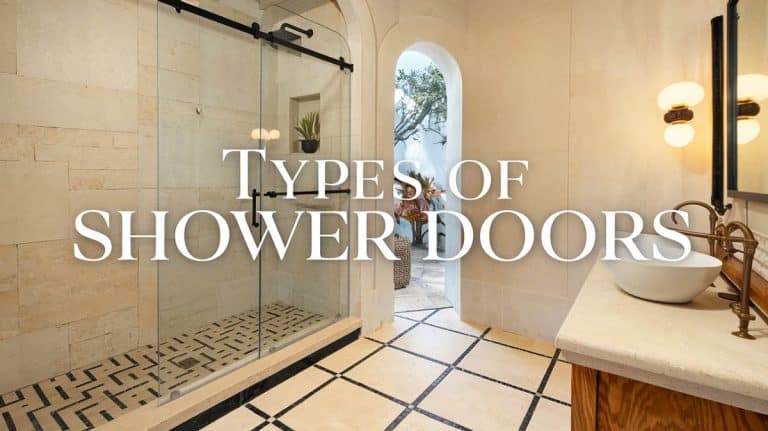
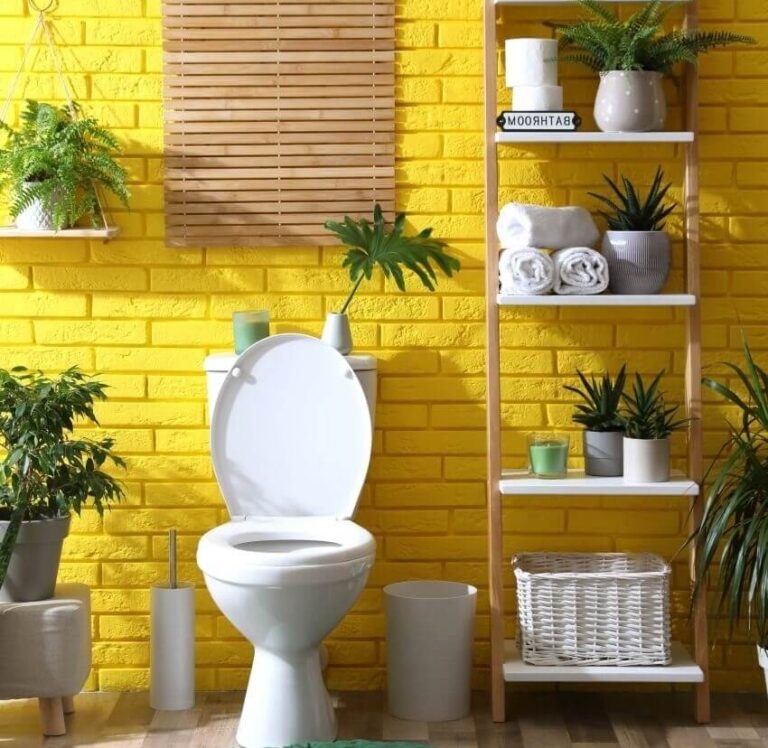
Hi. Do you know of an epoxy installer?
Thanks for your question! I don’t know your exact location, so it would be best to ask for local recommendations from people in your local community groups. Facebook or Nextdoor are two that come to mind. Good luck.